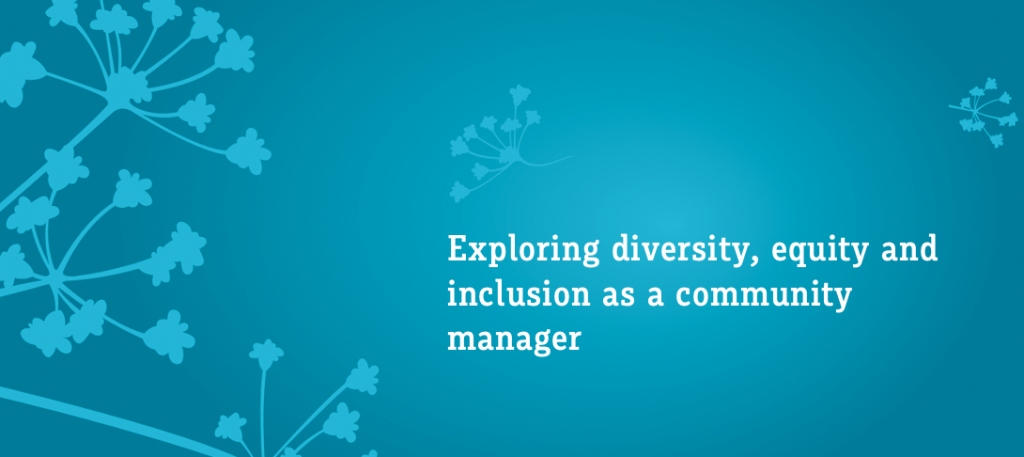This post is part of an ongoing series exploring a number of metaphors about community management that can support conversations about specific concepts and common challenges in a creative and free-flowing manner.
You can read more about the series – and the accompanying community calls in our overview post. For each metaphor, there will be a blog post describing the metaphor and several additional posts applying it to specific scenarios. This post is the second in a series of four posts dissecting the garden metaphor. Previously, we described the house party metaphor and you can download all of those posts in a concept booklet.

When you imagine a garden, do you see a large lawn with a single bed of roses? Or do you see a space filled with variety – plants with big leaves and small leaves; vibrant red flowers and tiny yellow blooms; trees, shrubs, perennials, and annuals?
Chances are, it’s the latter. But, it’s often much easier to plant and mow a lawn than tend a garden for a multitude of plants, each of which has its own requirements to flourish. Such vibrancy takes intentional planting, careful irrigation and fertilization, and ongoing maintenance to make sure all of your plants flourish, not just a select few. In this post we are going to focus on using the garden metaphor to think through establishing community spaces that are welcoming and inclusive. In our next post, we’ll be talking about ongoing maintenance (aka programming) that supports multiple types of members.
Continue reading “The garden metaphor for community management: Planting your garden – who is welcome in your community?”